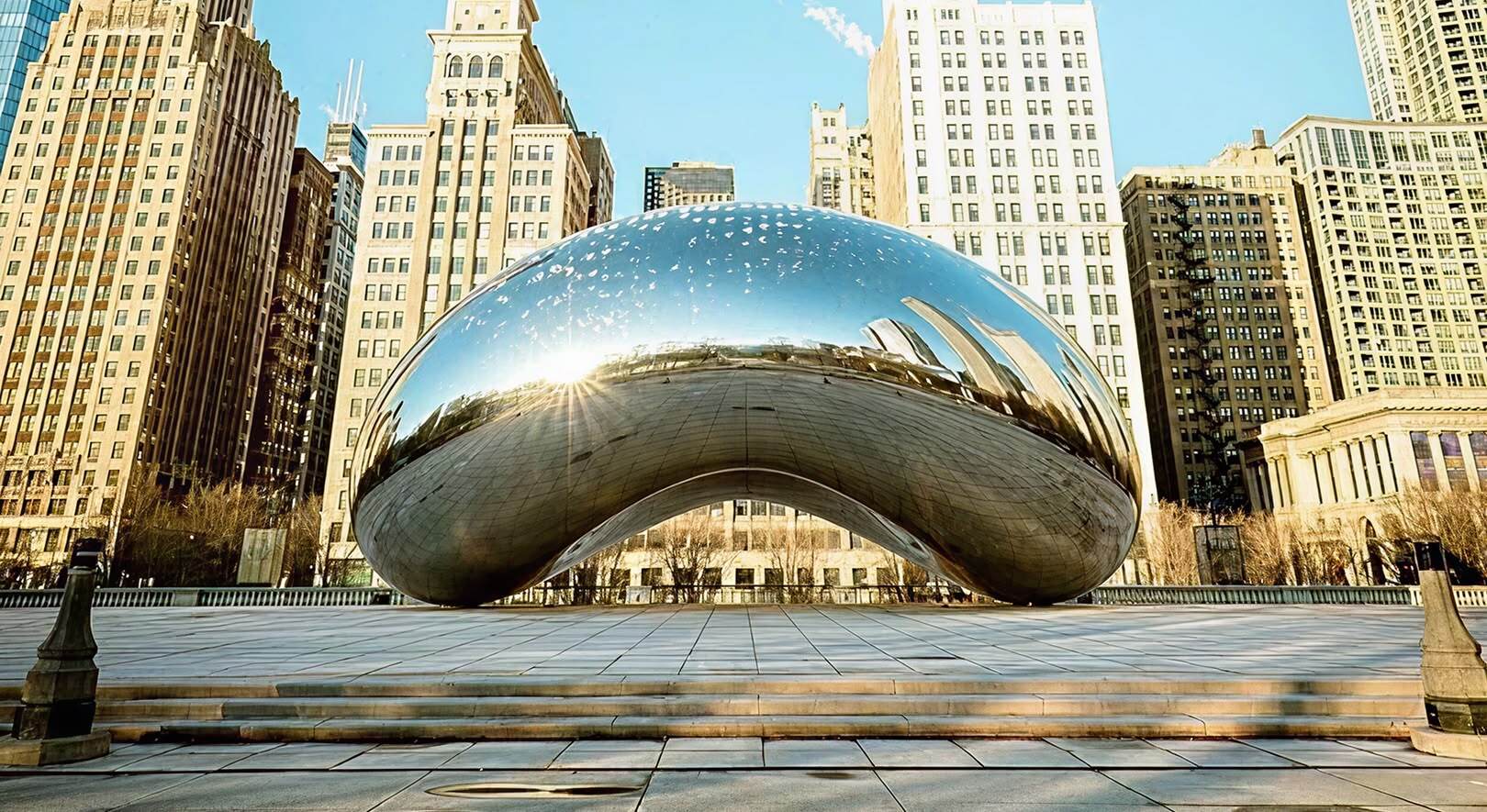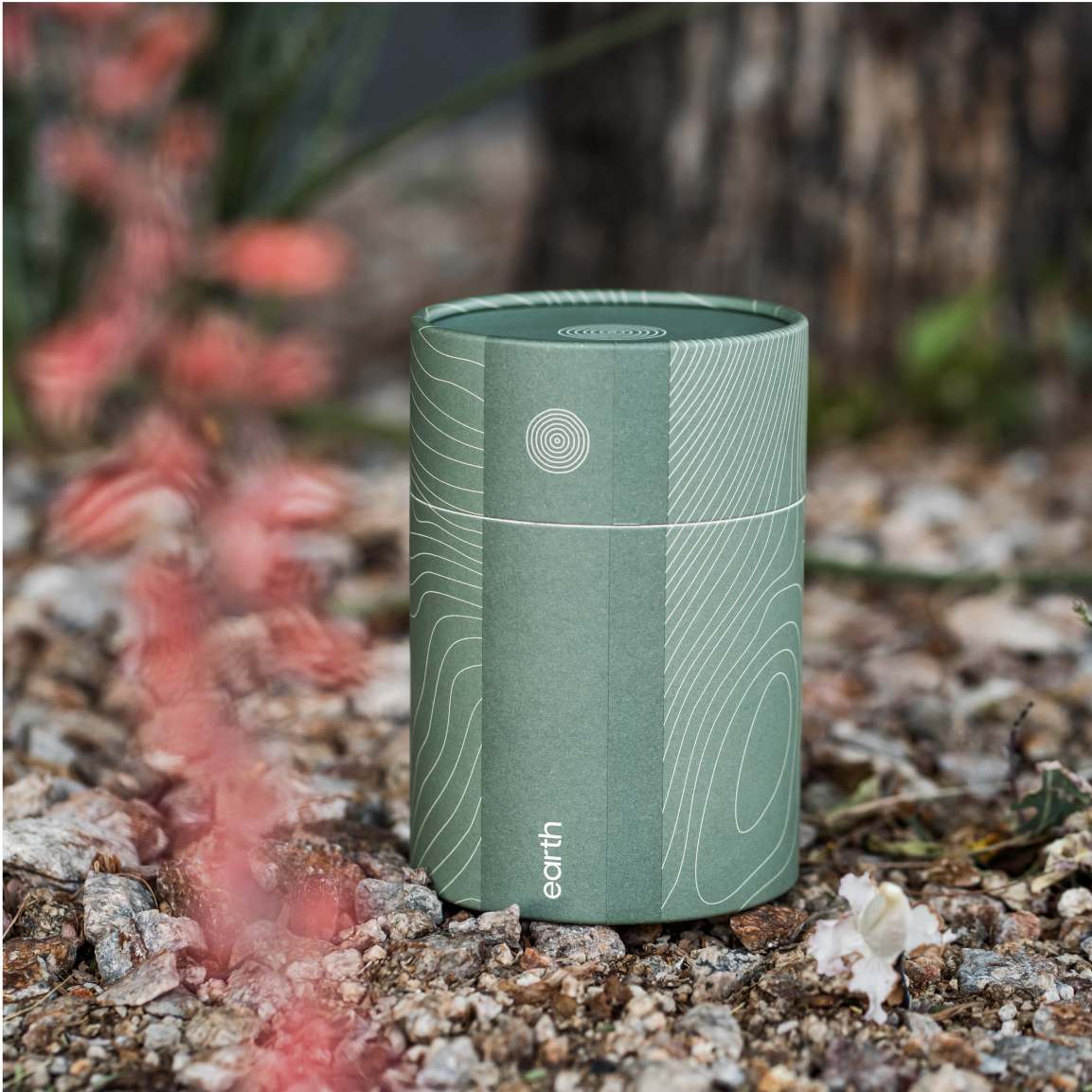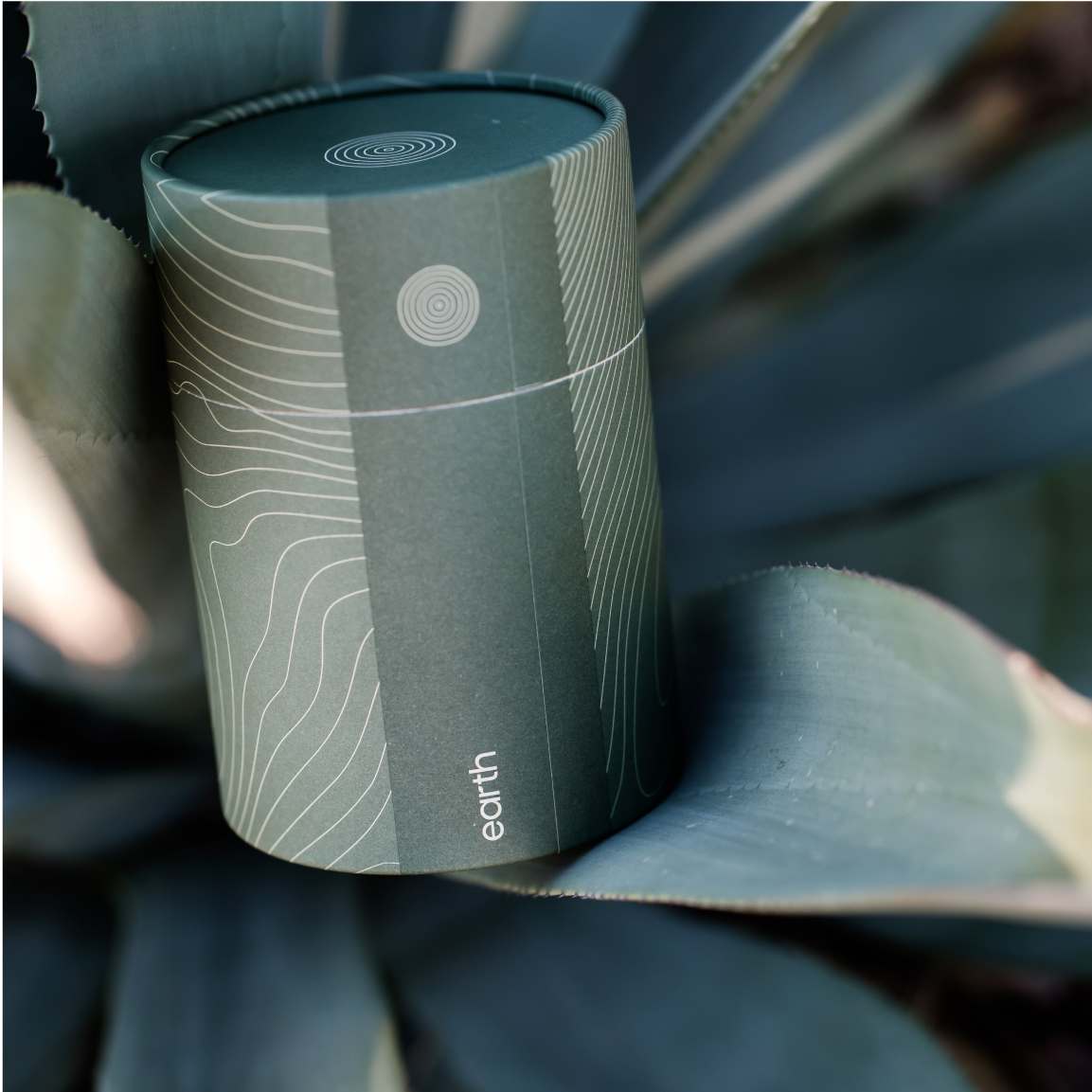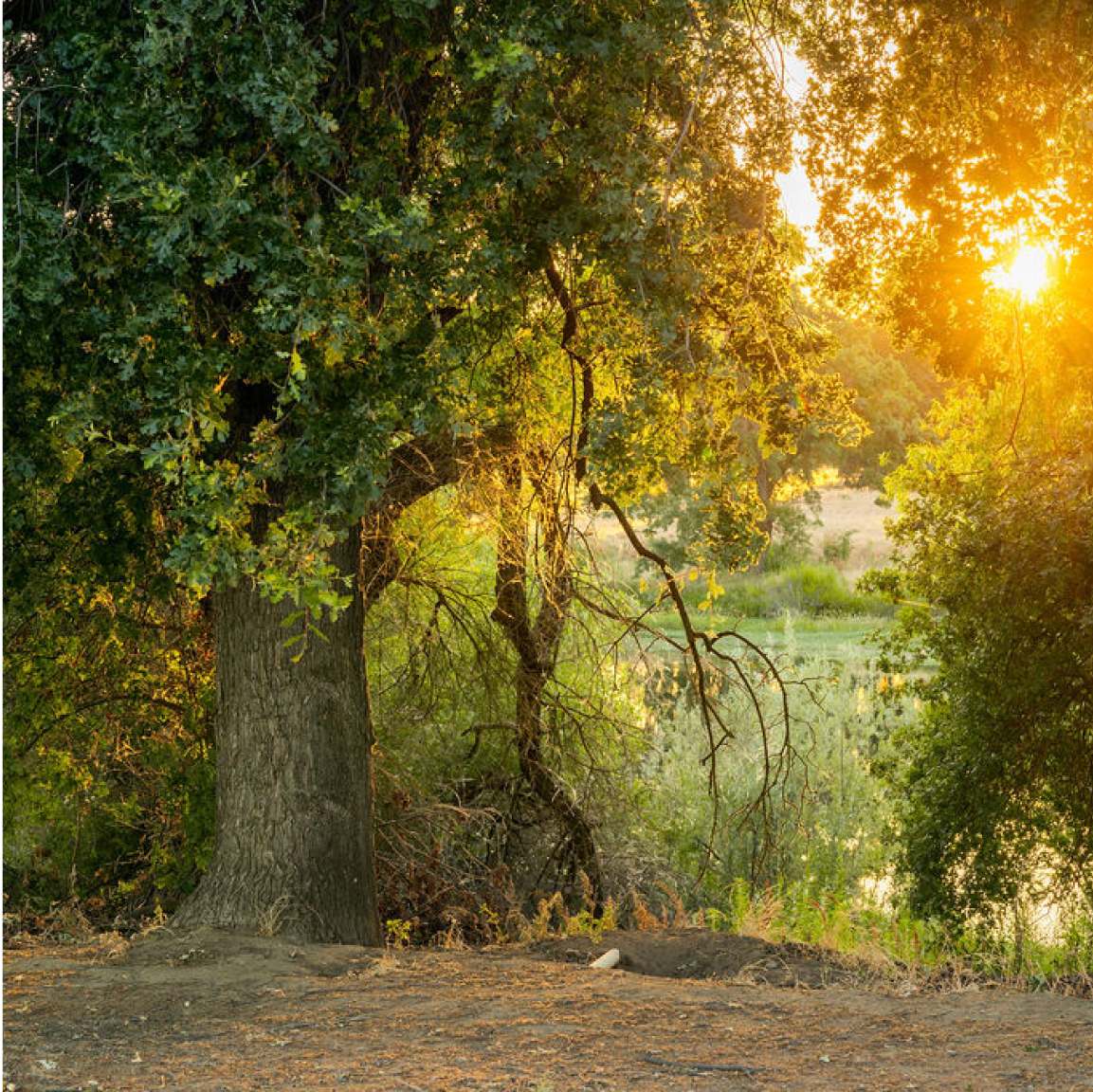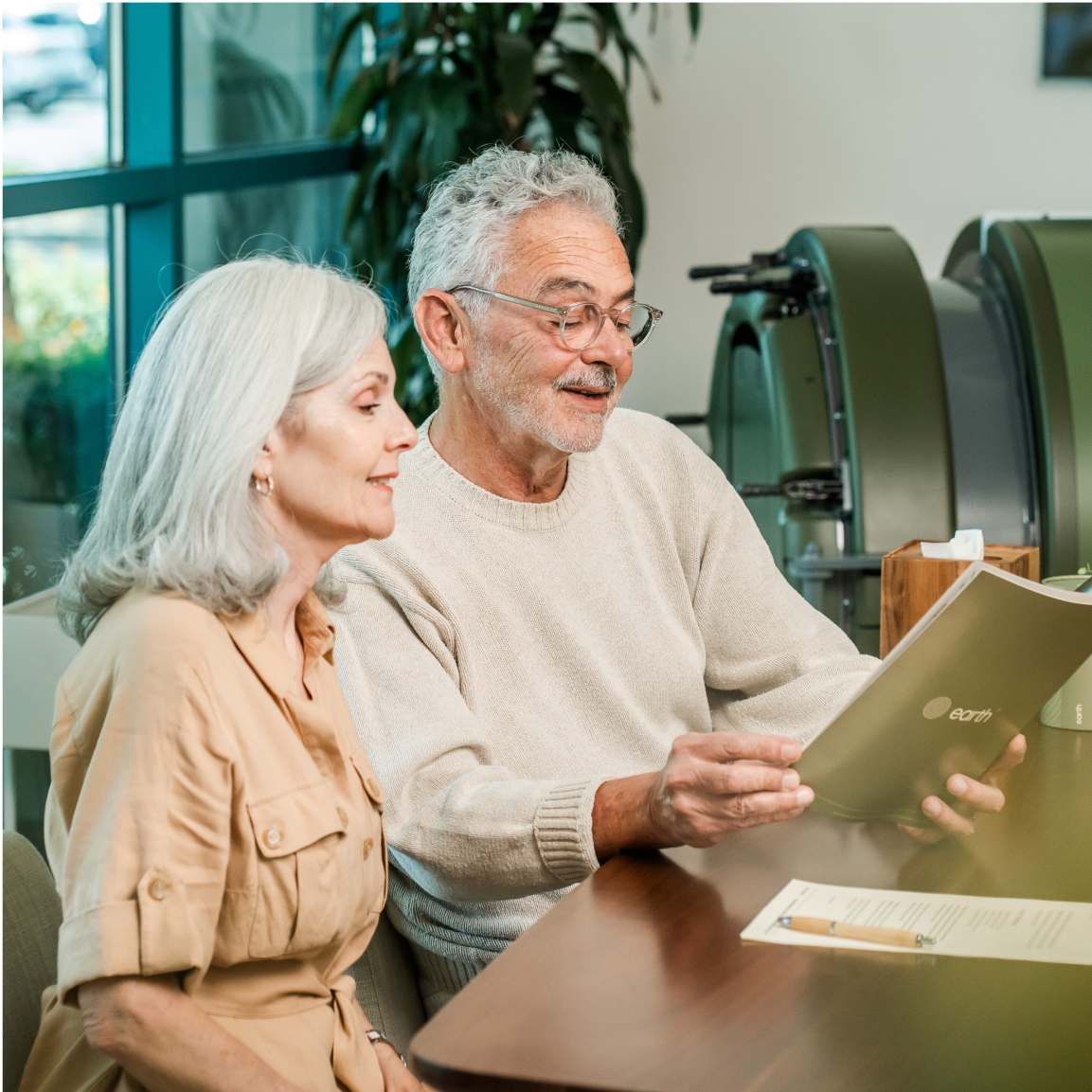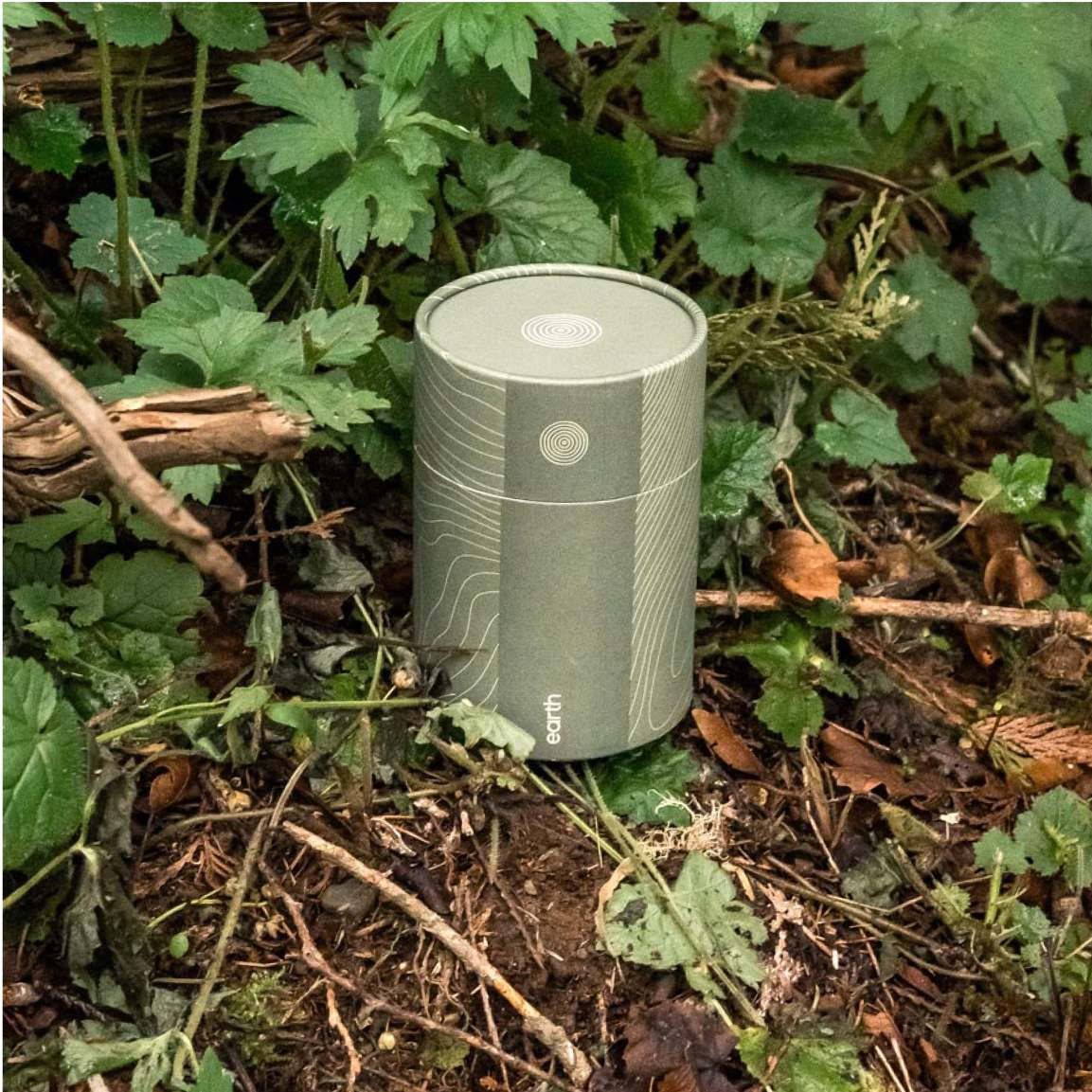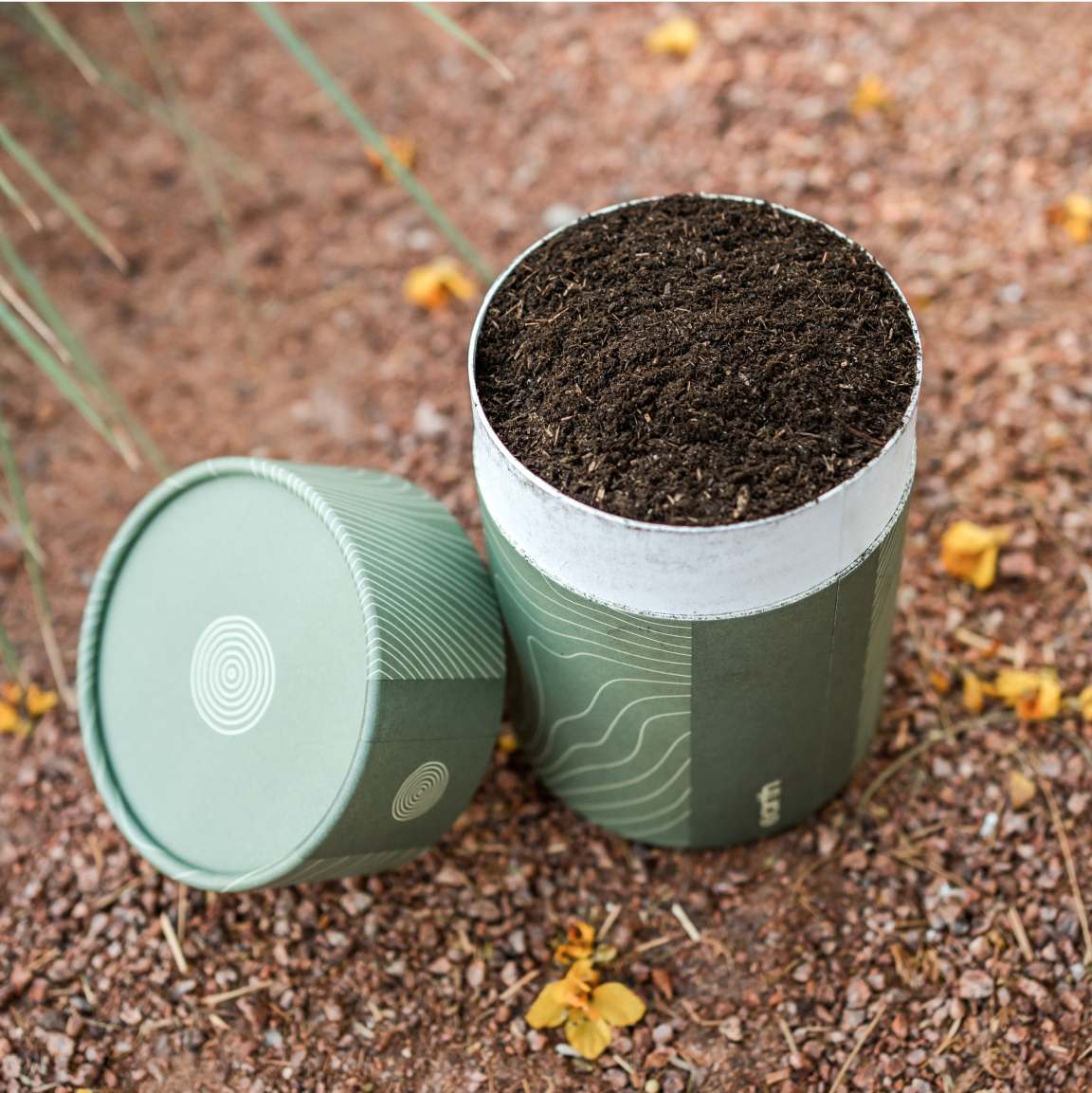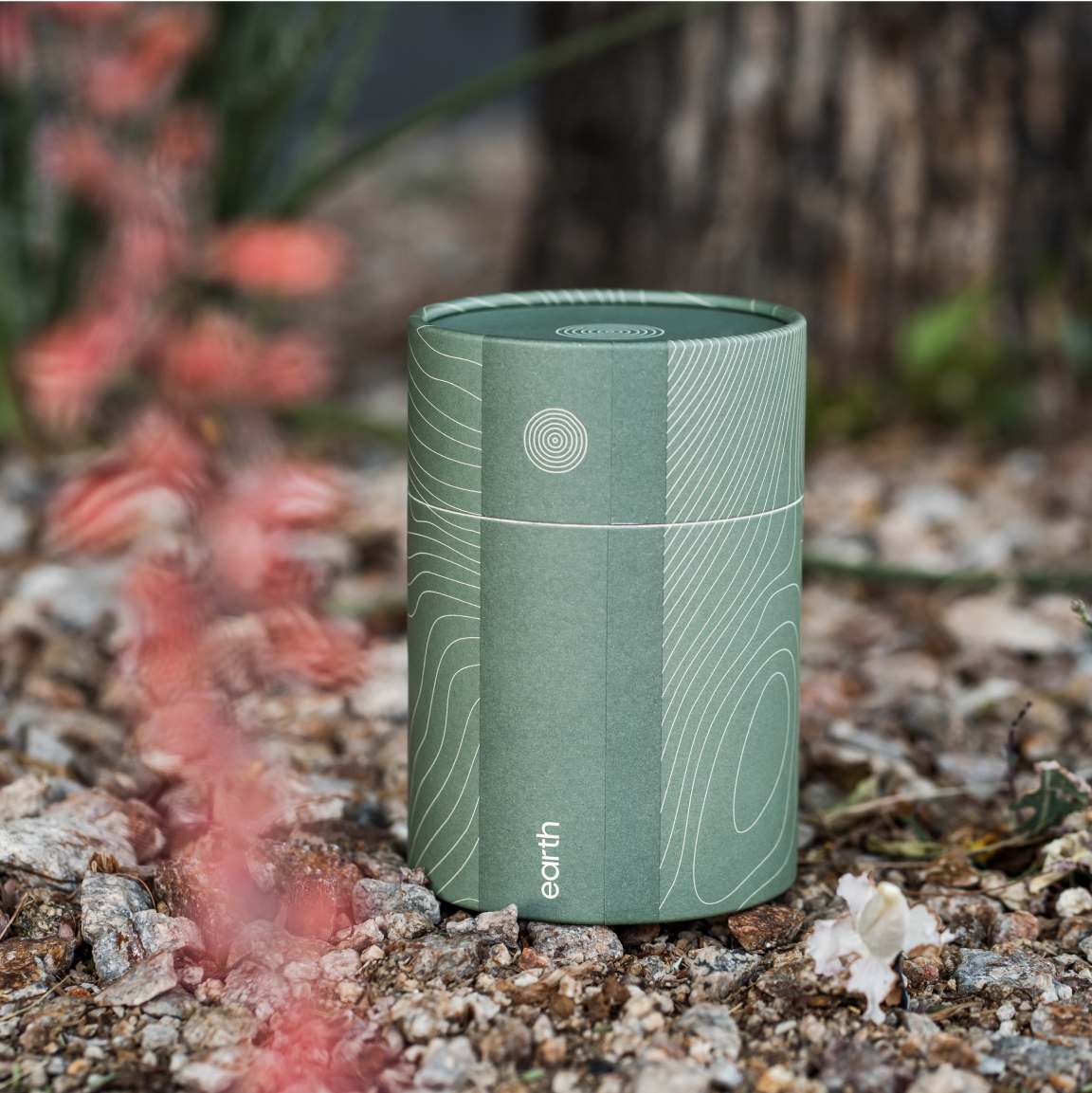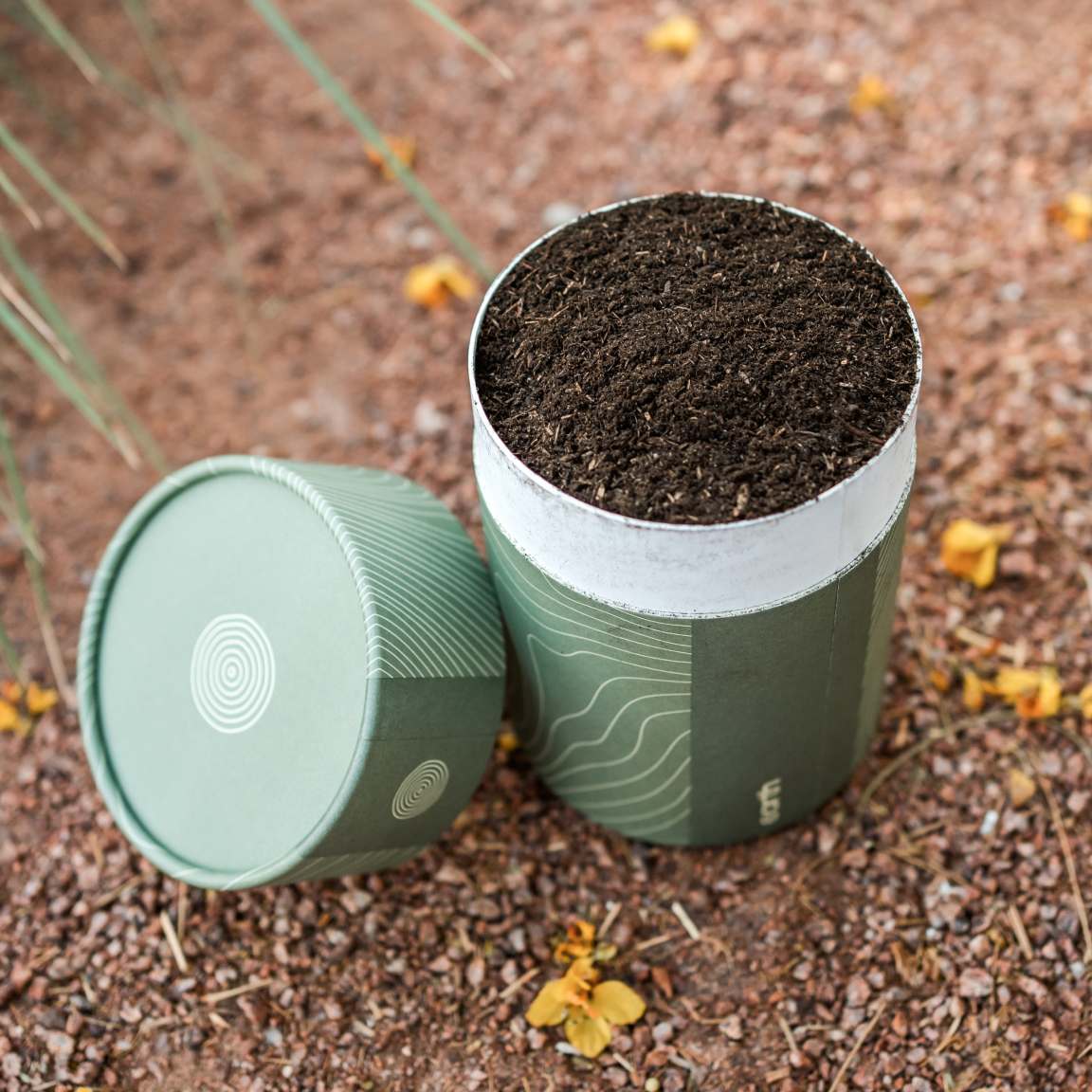
Human Composting 101
|
February 12, 2024
Nevadans now have access to an eco-friendly alternative to burial and cremation. In January, Nevada became the 7th state to legalize Soil Transformation™, also known as human composting or terramation. This gentle, carbon-neutral process allows someone to return to the earth after death, their body transformed into nutrient-rich soil that can be scattered, planted, or sent to a conservation site to help support a healthy ecosystem.
The legalization of human composting in Nevada provides a great deal of comfort to those who wish to have a positive impact on the planet, both during their life and when they die. It can be a comfort for families, too.
As climate change brings warmer temperatures, severe weather, and water shortages to Nevada and the rest of the world, human composting is an alternative to the unsustainable practices of burial and cremation. It’s a decision for the end of life that can help support new life for generations.
A Milestone for Eco-Friendly Funeral Practices
Human composting is now legal in Washington, Colorado, Oregon, Vermont, California, New York, and most recently, Nevada. Several more states are in the process of considering bills, in fact, since the writing of this article, Arizona, Maryland, Delaware, Minnesota, and Maine have legalized human composting now too.
The Silver State joined the growing list thanks to Assemblyman Max Carter II who lost his wife in a tragic horseback riding accident. Human composting was not legal in Nevada at the time of his wife’s death; as he learned about the process, he knew he needed to change that. Carter wanted Nevadans like his wife to have the choice to be forever connected to the land they love. He spearheaded the passage of AB-289, which passed into law on January 1, 2024.
“If this can help someone feel a little bit better about the passing of a loved one, then it’s all worth it,” he says.
Here at Earth Funeral, we’re tracking where human composting is legal across states, as legislation moves forward.
Understanding the New Law
The green funeral industry is growing, with more and more people seeking environmentally-friendly funeral options. The desire to become a tree after death may seem whimsical, but this new law makes it a reality in Nevada.
The passing of AB-289 provides a way for people to positively impact the environment with their end-of-life plans. As with all new things, there will be a transition period as the funeral industry and potential customers adjust to the idea of human composting and establish the facilities and regulations that make it possible.
Natural organic reduction (the term used to describe human composting in legislation) is now included within the legal definition of cremation in Nevada. There are some parallels between cremation and human composting, but the processes are also very different. Funeral directors and industry experts will need new regulations and standardized practices to support the unique process of human composting, which AB-289 authorizes.
Earth Funeral CEO and co-founder Tom Harries worked with Assemblyman Carter to legalize human composting in Nevada by testifying at assembly and senate committees. At Earth, we believe everyone should have access to our services, and we’re continuing to work towards expanding human composting accessibility in Nevada and making it legal in more states.
Thanks to AB-289, Nevadans can expect to see human composting become an option at traditional funeral homes and at new facilities in the future.

The Human Composting Process in Nevada
So what is human composting, exactly? And how does it work?
Human composting is a process by which a body is placed in a vessel, along with organic materials, to be broken down by microbes—in the same way a body would break down if placed directly in the earth, but in a much shorter timeframe.
Earth Funeral arranges for the pickup and transport of the body to our facility. We take care of death registration and death certificates. In handling the many logistics that arise when someone dies, we hope to relieve some of the burden of this incredibly difficult time.
After the body arrives at our facility, the process begins.
1. Preparation
First, bodies are gently cleaned and wrapped in a biodegradable shroud, then placed in a vessel on a bed of organic mulch and wood chips. Wildflowers are added on top, along with more organic material. The vessel is then sealed.
2. Soil Transformation
Over 30 to 45 days, microbes break down the body. Through the careful balance of carbon and nitrogen, and the optimization of temperature, moisture and oxygen levels, the body transforms into nutrient-rich soil.
During the process, vessels are kept in our peaceful, state-of-the-art facility in Auburn, Washington and carefully monitored by our skilled staff.
3. The Soil
Once the process is complete, families can choose how much of the soil they wish to receive, and the rest is donated to one of our conservation projects for land restoration initiatives. Many families choose to plant a memorial garden, a special tree, or give soil to loved ones.
{{CTA}}
Human Composting Environmental Impact and Benefits
Burial and cremation are the most common choices for handling a body after death. Unfortunately, both of these processes are harsh on the environment. The embalming of a body before burial uses formaldehyde and other chemicals, which can pollute the ground and water. Caskets are also treated with chemicals and made of materials like wood and steel that will never be reused or recycled. Cremation is a fossil fuel-powered process that produces about the same amount of CO2 as a 600-mile car journey.
Human composting, on the other hand, gives back to the environment.
The soil produced by human composting is rich in nutrients. When the soil is returned to the earth—whether that’s in your garden or a conservation project—it contributes to a healthy ecosystem.
Soil health is a critical component to a healthy environment. When a body returns to the earth as soil, it helps sequester carbon, prevent erosion, and provide nutrients to plants and animals.
Nevadans who choose human composting will not only contribute to a healthy ecosystem when their body is returned to the earth, but they can also be comforted in knowing that our entire process is carbon neutral. Our facility uses 100% renewable energy and each step in the process has been carefully considered and designed for minimal impact.
Where to Find a Human Composting Provider in Nevada
Earth introduced Nevada's first human composting facility in Las Vegas in 2024. From here, we're able to directly serve those in Nevada who are interested in human composting for themselves or their loved ones.
As awareness of the environmental impact of traditional funeral practices grows, more people are turning to human composting as a regenerative alternative. With the opening of our Nevada facility, this option has become even more accessible to those in the region.
If you’re interested in learning more about human composting in Nevada or elsewhere, give us a call and we’ll answer all of your questions.


